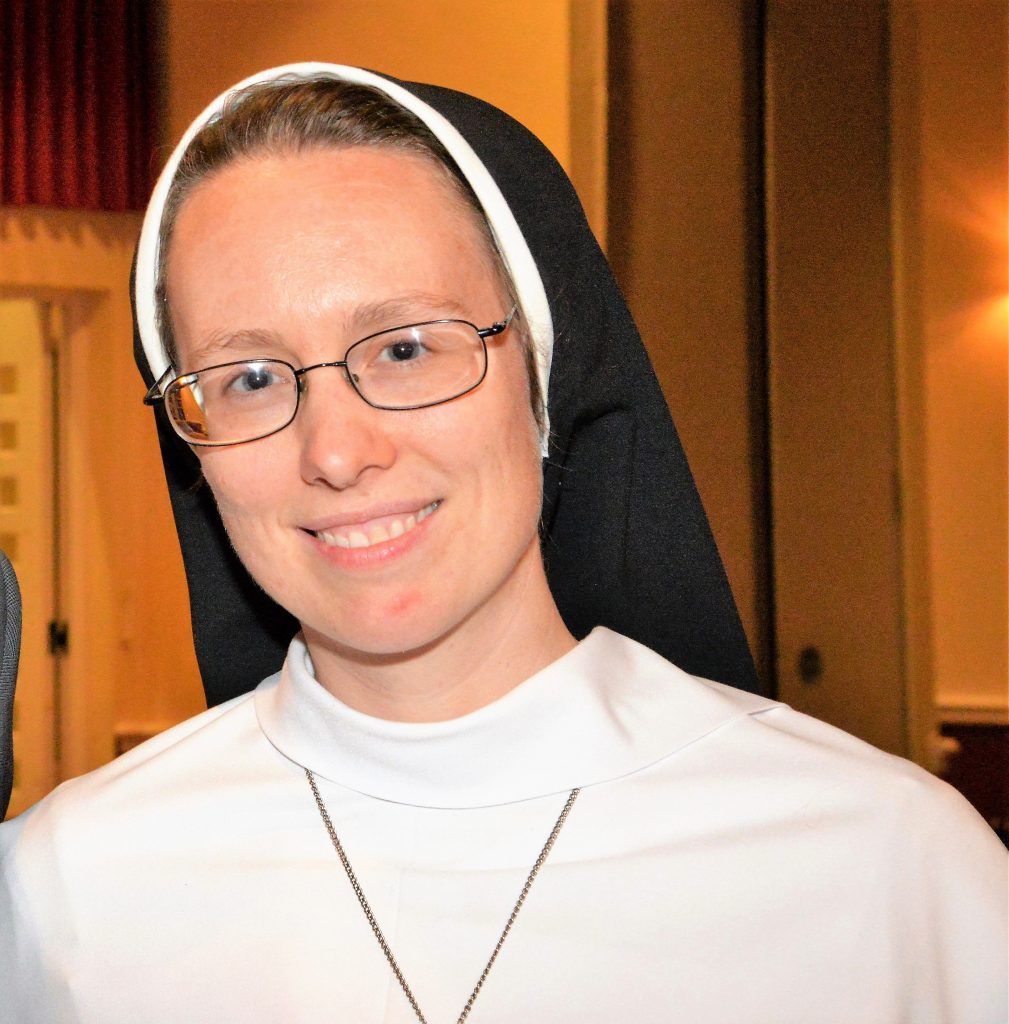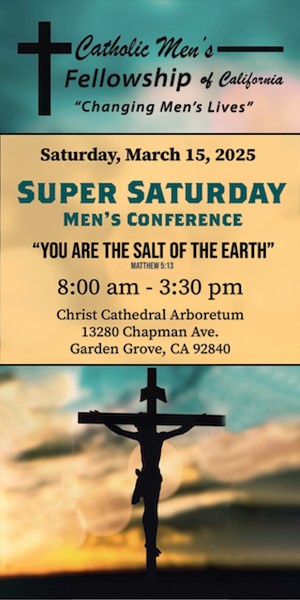“By a singular gift of God’s grace, no one other than her Son was ever so meek, humble, or grace-filled as the Blessed Virgin,” a new Manual for Marian Devotion notes. It’s a leather-bound volume (also available on Kindle) meant to help guide not only prayer by a lifestyle of going to Mary as mother, to be more like her Son, knowing and treasuring God’s will in your life. She is role model, intercessor, and teacher. How can we live that way? Sister Albert Marie Surmanski, O.P., a Dominican Sister of Mary, Mother of the Eucharist, who teaches theology at Ave Maria University, put the Manual together with the help of Sr. Maria Veritas Marks, O.P. (former Harvard salutatorian whose Latin commencement address was a YouTube hit in 2010). Sr. Albert Marie shares a bit about the book and Marian living.
Kathryn Jean Lopez: Why would anyone ever want to have a Marian devotion?
Sister Albert Marie: Can I quote from the Manual to answer? “Mary’s close association with Christ in the plan of redemption means that every Marian dogma teaches us more deeply who Christ is and who we are called to be.” That is a theoretical answer—but if it is true that knowing about Mary helps us know who Christ is and who we are, then coming to know Mary in a loving way will help us love and appreciate both Christ and the dignity of our Christian vocation.
Lopez: It can be easy to fall into a lazy praying of the Rosary — where it’s quick and routine. What can be done to get out of such a bad habit? (How guilty do I sound?)
Sister Albert Marie: Don't be too guilty. I think there is something beautiful when praying the Rosary is routine. It means it has become second nature to us and will be there as a habit that we can find comfort in during times of trouble. In a way, praying the Rosary, even in a routine way, is expressing a desire to be in Mary’s presence.
Of course, it is better not just to desire to be in Mary’s presence but also to look at her attentively, speak with her, and gaze upon the face of Christ with her. What is the Rosary? It is communication. It isn’t just a “Catholic thing to do,” but a prayer to Mary and Christ. They listen to us when we pray.
The Marian Manual includes several pages of quotes about the value of the Rosary. Reviewing these can help renew our enthusiasm for the Rosary. For example, John Paul II says that the Rosary is “an echo of the prayer of Mary, her perennial Magnificat for the work of the redemptive Incarnation that began in her womb.” Or, St. Teresa of Calcutta relates words that Mary spoke to her, “Fear not. Teach them to say the Rosary—the family Rosary—and all will be well.”
We also included in the Manual a set of simple meditations on the Rosary, written by Sr. Maria Veritas Marks, and a set of Scripture verses that fit well with each mystery.
Lopez: Do Catholics have a real danger of confusing Mary for God? (The “worshipping Mary” charge.)
Sister Albert Marie: I hope not. I haven’t met anyone who does. We try hard in the Manual to show Mary’s place in salvation history. Mary’s glory is that she isn’t God—she is his most beautiful and most responsive creature. She is one of us.
Lopez: Is Mary’s perpetual virginity and motherhood important in this day and age? In our culture? In debates about marriage and pastoral care?
Sister Albert Marie: I do think that Mary's perpetual virginity is important. This can be a difficult teaching for some today. It seems like something unnatural or something unjustly imposed upon Mary. It seems like a private personal detail. Why are we talking about it?
As we say in the Manual, “The miracle of Mary’s perpetual virginity is a secondary miracle following upon the Incarnation, so her heart, memory and body all attest to the wonderful way in which the Son of God became man in her. In her virginity, Mary is an image of the Church, which preserves whole and untarnished the faith entrusted to her by Christ.”
So yes, her virginity is a personal detail, but it is a personal detail with meaning behind it. In our culture, we sometimes forget that our bodies have meaning. What we do with them speaks about who we are. Mary’s virginity, expressed also in her life, attests to the supreme importance of God.
I think it also important to remember that Mary chooses joyfully. She says, “Behold the handmaid of the Lord. Be it done to me according to your word.” Yes, Mary is being receptive here. She is welcoming God’s plan. But she is the one who chooses. Mary is a strong woman. She questions the angel. She heads out on a journey to visit Elizabeth. Possibly it was also her choice to go with Joseph to Bethlehem to be registered in the census. We do her a disservice to assume that she didn’t joyfully embrace her virginity as the foundation of a life centered radically on God—Jesus, the Father, and the Holy Spirit dwelling in her. What was her relationship with God like? What was her experience? Even practically, it was her virginity that meant she was free sometimes to follow Christ in his ministry, to be at the foot of his cross, to take on a motherly role in regard to the Church. Her virginity isn’t about passivity—it is about freedom to take on an important role in the plan of God.
Lopez: How can a busy mother become closer to Mary today?
Sister Albert Marie: I would suggest thinking about Mary as you go about the tasks of your daily life. No one lived a more ordinary life than Mary, yet no one lived more beautifully. One of my favorite spiritual writers who speaks about Mary is Catherine de Hueck Doherty, a Russian emigrant who came to North America after World War I and founded the Madonna House Apostolate. In her writings, she often speaks about making your home like Nazareth—a place where Christ is welcome, where every action expresses God’s love. Catherine has a tremendous sense of the spiritual power that lies behind an ordinary life lived in the grace of God. She writes about Mary, “She’s the woman of speech and the woman of silence. She’s stronger than an army in battle array and as weak as only a woman can be with God. She dusted and she cleaned. She cooked and she knew how to weave. Her life was a sea of small things.”
Lopez: What’s your favorite Marian prayer?
Sister Albert Marie: I think I have a different answer every time I am asked this question! I love the Salve Regina. As Dominicans, we pray it as a “goodnight” to Mary at the end of every day. I am particularly grateful for the words, “To thee do we cry. . . mourning and weeping in this valley of tears.” I love that we can turn to Mary when we are suffering. I also love the recognition that we do live in a “valley of tears.” The world is not perfect. It is not a shocking betrayal of the Christian message when our lives are difficult or we are imperfect. God came through Mary into an imperfect, broken, sinful world. He still shines his light on us and through us when the circumstances of our lives are difficult, challenging, and imperfect. In a paradoxical way, the phrase about “this valley of tears” makes it easier for me to be cheerful. I think, “Right. God is perfect. I’m not, my life isn’t, and this world isn’t. And that’s ok. My joy comes from Christ.”
Kathryn Jean Lopez is senior fellow at the National Review Institute and editor-at-large of National Review.

